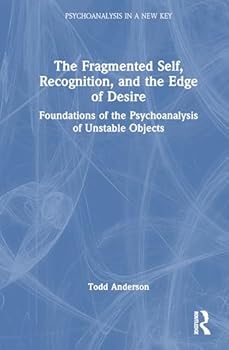The Fragmented Self, Recognition, and the Edge of Desire: Foundations of the Psychoanalysis of Unstable Objects
This book explores the most unstable facets of psychic life and how these can be understood and engaged in the psychoanalytic consulting room.
Psychic life is sustained by its very instabilities--by fragmentation, paradox, and the defenses that make survival possible. In dialogue with both psychoanalytic and philosophical traditions, Anderson shows how analysis becomes an aesthetic practice of presence, one that sustains the paradoxes necessary for psychic vitality. Reframing foundational psychoanalytic concepts such as the false self, regression, and symbolization, this book develops a clinical lens attuned to ambiguity, embodiment, and survival. Drawing from relational and post-structuralist traditions, it weaves vivid clinical vignettes with theoretical inquiry to explore how the psyche organizes itself around absence, symbolic rupture, and ethical refusal.
With a distinctive perspective on subjectivity, this book offers an aesthetic and ethical framework for psychoanalysis--one that sustains engagement with paradox, dissociation, and symbolic survival over premature resolution. It is essential reading for psychoanalysts, psychotherapists, and scholars of psychoanalytic thought.
Related Subjects
Psychology




